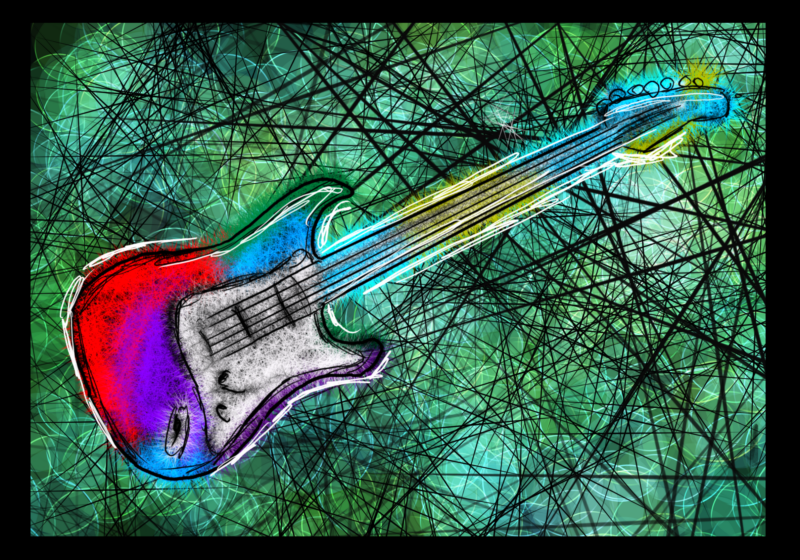After our No Jackets Required set during Drama House’s Halloween party, I had this guy come up to me to compliment the show. He said, and I quote, “I loved how you only sang songs by men.”
At first, I had no clue what he meant or if I should be flattered. I took it in an “I loved how you gender-swapped your voice” way, when it probably could have been taken in a sexist way. This experience reminded me of how men largely dominate rock, metal, and heavier genres of music, whether it be writers, instrumentalists, vocalists, producers, or even tech people doing audio engineering.
I’ve always known this, but it rarely crossed my mind before coming into my first semester of college. I was so excited to be able to perform my favorite songs regardless of who wrote them.
My music taste includes a mix of music from a variety of genres, bands, and artists of all races and genders. In actuality, I do find myself listening to a lot of pop-punk, a genre with a surplus of white male artists. A lot of pop-punk bands I listen to have probably taken inspiration from bands that are composed of alleged pedophiles and sexists such as Brand New and All Time Low. As a musician myself, I’ve dealt with sexism from guys who’ve undermined my skill on the guitar without ever actually hearing me play. Overall, I believe that punk, rock, and metal scenes are difficult to navigate for feminine-presenting people.
Whenever I find a heavier band or artist that isn’t white or male-fronted, I appreciate them more. It is hard to find representation and easy to find bigotry, which makes it very hard for feminine-presenting people or people of color to feel included in heavier genres of music. Heavier genres like hardcore, metalcore, and punk offer refuge for artists to release their anger and emotions but in a scene broadly dominated by white men, those who deviate from the norm can find it difficult to express their criticisms of the scene without being further excluded.
White men simply don’t have to search for their representation — it’s handed to them on a silver platter. Though this is an obvious trend within culture and media at large, I am more focused on its role in heavier music. They don’t have to think about who is writing the music they listen to because they already have that representation and support. Bands fronted by people of color, queer folk, and feminine-presenting people have always existed, but because their white, cisgender male counterparts overshadow them, they struggle to find and build a following and are often belittled for their musical skill.
Mainstream rock is still predominantly white, straight, and male-fronted, which is heavily reflected in their fanbase. Further, a lot of heavier metal bands and musicians like ManoWar, Marilyn Manson, and Burzum pushed bigotry within either their lyrics or lifestyles. Even more well-known rock/metal bands like Guns N Roses, Slayer, Korn, Nickelback, Limp Bizkit, and the Rolling Stones have songs romanticizing sexism, gendered violence, and even racism. Often, these artists do not face any harsh repercussions due to their highly-defensive fanbases. Songs with such disturbing content are bound to alienate minority groups that are already negatively affected by said prejudices in real life.
I’m sick and tired of playing and listening to the same white man’s song. I want heavier music to release the anger that so many people have about bigotry and exclusion. And I’m over playing covers from bands that are only written and fronted by straight, cisgender white men. I’m exhausted by bands with feminine-presenting vocalists being seen as the only diversity rock needs. I want people of color, LGBTQ+, and women at UR to have a place to find confidence in their musicianship and to not feel excluded from a scene because of underrepresentation.
Music is by and for everyone, and we aren’t going to portray that message if we only play rock/metal from a white male lens. It’s time for people to question what they listen to, why they listen to it, and to realize how important it is to listen to and support Black, Indigenous, gay, transgender, and feminine-presenting artists because of how long they have struggled to be heard.



